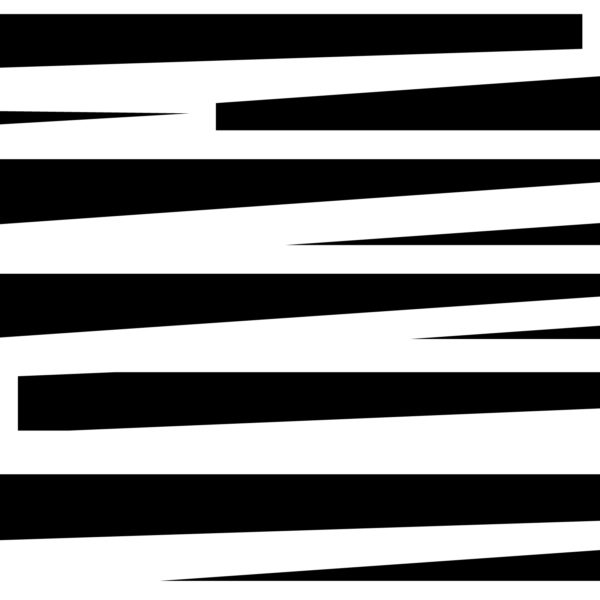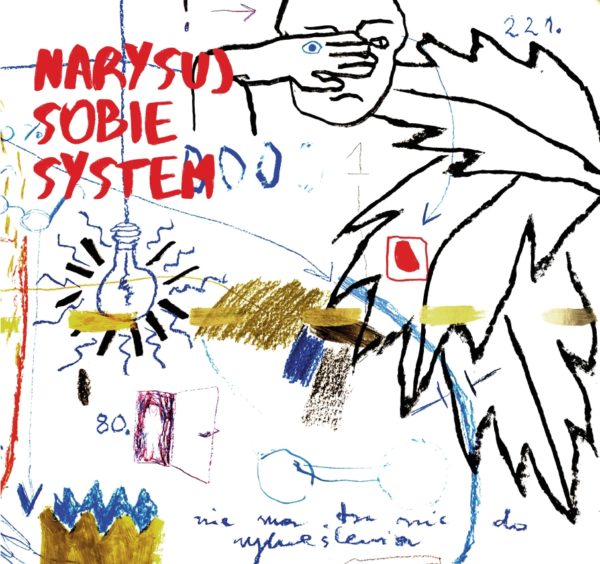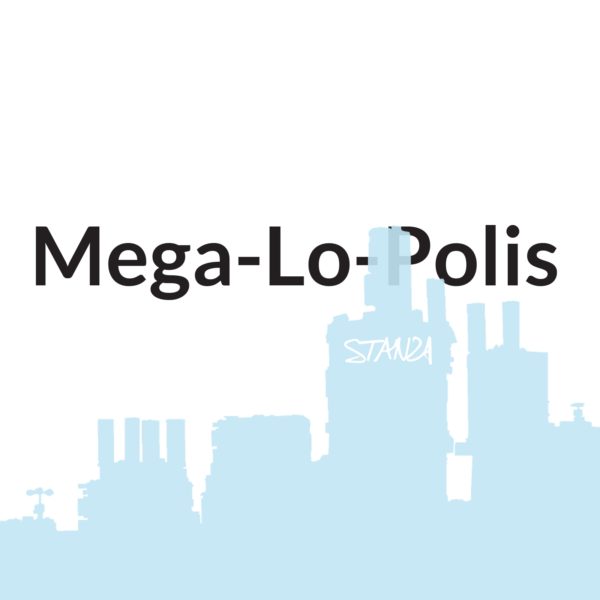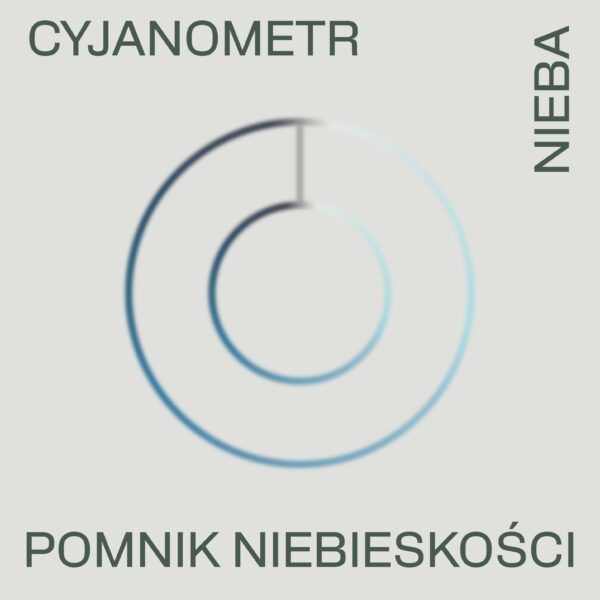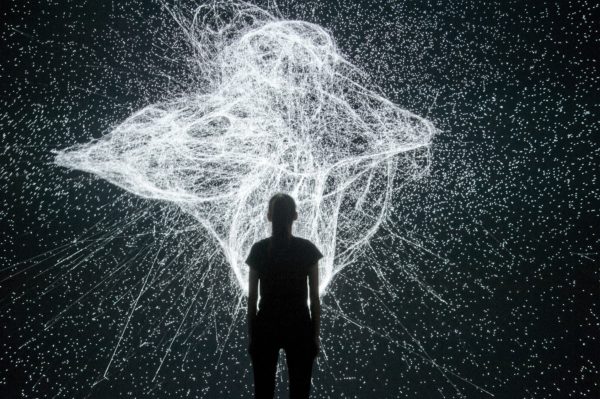Info
website & program
wro2017.wrocenter.pl
Featuring the latest works by artists from all over the world, the International WRO Media Art Biennale is Poland’s main forum for new media art and one of Europe’s leading arts events.
This year’s exhibitions, shows, meetings, performances and concerts were staged under the motto of DRAFT SYSTEMS. The phrase represented the mutability of the world’s regulatory systems, highlighted their complexity and instability, underscoring their volatile control-defying nature and foregrounding on-going reorganisations of reality.
Ongoing projects:
WRO on Tour program – 2017/2018
Cyanometer – in the public space / from May 2017
The opening events and exhibitions held at 17 venues across Wroclaw (e.g. at the WRO Art Center, the National Museum, Ballestrems’ Palace, the Pokoyhof Passage, the National Forum of Music, the White Stork Synagogue and, for the first time, at the Feniks Department Store), present projects by artists invited by the WRO Art Center’s curatorial staff alongside entries selected from among 1300 received from all over the world in an open call.
One of the Biennale’s highlights was Suzanne Treister’s HFT the Gardener. The multi-layered and multi-dimensional project blurs the boundaries of art, nature, language, mathematics, economy and the trauma of history. It examines correlations and rules of economic decision-making dissociated form scientific insights, mysticism and psychedelics resonant with the global market and the interaction of esotericism and the economy/financial sector.
Facebook Algorithmic Factory address the process we undergo in changing from a user to a commodity of the capital market. Placed in one of Wroclaw’s streets, a monument called The Cyanometer is measuring the blueness of the sky and, at the same time, gauge air pollution.
The WRO Biennale also serves as a platform for experimentation by Polish artists. In his project, Paweł Janicki explored the artistic potential of the RPN – Reverse Polish Notation, a historic achievement of what came to be known as the Lvov-Warsaw School of Mathematics, a world-renowned movement of philosophy and logic in its day.
Maciej Markowski, whose Quartet for Tomatoes has been performed in Wroclaw and Warsaw in recent years under a joint venture of the WRO Biennale and the Musica Electronica Nova festival, this time shown his Mute Music, an installation developed in collaboration with John Zorn.
Among the May events, there also were presentations of projects produced by the WRO Art Centre’s artists-in-residence. The Eastern Park, which in 2016 hosted the WRO’s gigantic wooden Megaphones amplifying the sounds of nature, was staged of a night show/installation/performance of Andrey Ustinov’s Film Noir will take place.
There was also an opportunity to see a kinetic object sustained and moving in the electromagnetic field, the latest work by Carolin Liebl and Nikolas Schmid-Pfähler, who have found inspiration in their visit to the WRO Art Centre and workshops with the young audience.
During the Biennale, the leading specialists in digital culture and communication, including Alek Tarkowski, Mirosław Filiciak and Paweł Janicki, took part in the Culture Networks 1 meeting to discuss the condition of digital culture in Poland and the Internet as a cultural model that inexorably affects entire culture.
Another Biennale event was the third edition of the Competition for the Best Media Arts Graduation Projects organised by the WRO Art Center and the Eugeniusz Geppert Academy of Art and Design in Wroclaw. The competition showcases the most compelling graduation projects from art schools at Gdansk, Katowice, Cracow, Lodz, Poznan, Szczecin, Warsaw and Wroclaw.
Of course, the Biennale programme includes also Little WRO – a series of shows and events dedicated to children and their families, This year, the Kraszewski family, friends of the WRO Art Center ever since 2008, have been invited to co-develop the programme. This innovation is informed by the idea of giving voice to an entire array of viewpoints – insights and preferences of young children, teenagers and parents alike.
As in previous years, a rich programme of the 2017 Museum Night has been designed for several of the Biennale’s venues.
A foretaste of the WRO Biennale was given by an exhibition of Norimichi Hirakawa. One of the most interesting Japanese media artists of the young generation, Hirakawa works at the intersection of arts and science. In his first solo show in Poland, he will present algorithmic installations, including two entirely new projects he developed especially for the WRO during his residency at the Kavli Institute of the Physics and Mathematics of the Universe, University of Tokyo.
–
Co-financed by the Municipality of Wroclaw and the Ministry of Culture and National Heritage of the Republic of Poland, and supported by the Adam Mickiewicz Institute, Austrian Cultural Forum, Japan Foundation, EU-Japan Fest Committee, Nomura Foundation, Goethe-Institut and British Council.
–
Patron: Griffin Art Space
About
The context for the Biennale’s presentations and meetings in 2017 comprises a series of observations of the irreversible nature of some phenomena of the present. As some of the critics point out, the felt casing of the unsustainable welfare has overheated. “The Earth has virtually shrunk to a single point – it rotates, as a temporally compact orb, in an electronic layer that surrounds it like a second atmosphere” (Peter Sloterdijk, “In the World Interior of Capital: Towards a Philosophical Theory of Globalisation”, Cambridge, 2013).
The technological development – considered at all its stages – has proven costly to the planet; in the social processes and incorporated systems, we can see that the barely established synergy is getting dissociated again, democracy as best of the worst systems (“Indeed, it has been said that democracy is the worst form of government except all other forms that have been from time to time”, Winston Churchill, 1947) seems to no longer be sustainable and loses its followers.
Broader access to information did not protect us against stereotyping notions about the world and did not free from prejudices.
Former systems of social organization are losing their meaning, democratic mechanisms of negotiating meanings fail, and the sense of community gives way to community platforms. We give our privacy, dexterity, immediacy right away with no regret. Common efforts give way to motivations advocated by algorithms. We are trying to express our individuality by distributing images of our own satisfaction.
As participants of the data exchange in the social network while seeking makeshift alliances, do we pledge allegiance to communication procedures and accept shaky, precarious and temporary positions? (post-media?)
The system infrastructure that shapes us and works us out does not come into sight. One cannot embrace the new systems, even though they’ve turned into environments, as they lost their visibility through the presence of “individually” used devices.
“Organization seizes man wherever he enters the field of technical progress. Technology not only supplies the demand; it also organizes it.” – Friedrich Georg Jünger, 1944
How does artistic outline this movement? Does it seize these variable conditions? Does it fully capture them and frame in the form of communication? To what extent does contemporary art reflect/express/drifts apart from these processes: always between draft and action, concept and manifestation? (DRAFT SYSTEMS)
Viola & Piotr Krajewski
WRO 2017 Artists
César Escudero Andaluz (ES) + Martín Nadal (ES)
Anxious to Make – Emily Martinez (US) + Liat Berdugo (US)
Art-cluster R+N+D – Anton Lapov (UA) + Maxim Losev (UA)
Elena Artemenko (RU)
Isabelle Arvers (FR)
The Bad Vibes Club & Field Broadcast – Matthew de Kersaint Giraudeau (GB) + Sam Mercer (GB) + Rebecca Birch (GB) + Rob Smith (GB)
Martin Bricelj Baraga (SI)
Sammy Baloji (CD)
Natalia Balska (PL)
Ada Birecka (PL)
Christin Bolewski (DE)
Om Bori (HU)
Johanna Bruckner (AT)
Tymek Bryndal (PL)
Bull․Miletic (NO/US)
Clément Carat (FR)
Ioan Ovidiu Cernei (RO)
Carla Chan (HK)
Emma Charles (GB)
Cheng-Hsu Chung (TW)
Monika Czyżyk (PL)
Warley Desali (BR)
Marcin Dymiter (PL)
Exchange of the Rat (JP)
Elvin Flamingo (PL) + Infer – Radosław Deruba (PL) + Patryk Chyliński (PL)
Harriet Fleuriot (GB) + Sarah Cockings (GB)
Susanna Flock (AT)
The Fortunists (DE)
Siegfried A. Fruhauf (AT)
Magdalena Gembala (PL)
Andy Graydon (US)
Grinder-Man – Hitoshi Taguchi (JP) + Makiko Izu (JP)
Krystian Grzywacz (PL)
h0nh1m – Chris Cheung (HK)
Tomasz Hanoff (PL)
Constantin Hartenstein (DE)
Bjørn Erik Haugen (NO)
Beate Hecher (AT) + Markus Keim (IT)
Antje Heyn (DE)
Isamu Hirabayashi (JP)
Norimichi Hirakawa (JP)
Paweł Janicki (PL)
Przemysław Jasielski (PL)
Sawako Kabuki (JP)
Dominik Keggenhoff (DE)
Aleksander Komarov (BY) + Maxim Tyminko (BY)
Marta Krześlak (PL)
Peter Kutin (AT) + Florian Kindlinger (AT)
Alexandre Larose (CA)
Byungju Lee (KR)
Diana Lelonek (PL)
Ka-lun Leung (HK/PL)
Carolin Liebl (DE) + Nikolas Schmid-Pfähler (DE)
Zen Lu (CN)
Maciej Markowski (PL) + John Zorn (US)
Emily McFarland (IE)
Martina Menegon (IT)
Joana Moll (ES)
Lydia Moyer (US)
Yuri Muraoka (JP)
Christian Nicolay (CA)
Nika Oblak & Primož Novak (SI)
Uladzimir Pazniak (BY/PL)
Shabtai Pinchevsky (IL)
Patrycja Plich (PL)
Dani Ploeger (NL/GB)
Sascha Pohflepp (DE)
Víctor Hugo Portillo (SV)
Wiktor Przybył (PL) + Małgorzata Klajn (PL)
Shuai Cheng Pu (TW)
Remu IWAI (HK) @ room 1224 & associates (HK)
Diego Ramirez (MX)
Mirosław Rogala (PL/US)
Hiroya Sakurai (JP)
Simon Schäfer (DE)
Alan Segal (AR)
Jana Shostak (BY/PL)
Signal to Noise – Niall Quinn (UK) + Oliver Wilshen (UK)
ronnie s (NL)
Stanza (GB)
Aleksandra Stodulska (PL)
Kamen Stoyanov (BG)
Katharina Swoboda (AT)
Zamir Suleymanov (AZ)
Systaime – Michaël Borras (FR)
Katarzyna Szymielewicz (PL) + Vladan Joler (RS) + Paweł Janicki (PL)
Takuma Takahashi (JP) + Shugo Hirao (JP)
Talk to Jiwon – Jiwon Choi (KR)
Keiichi Tanaami (JP)
Aislinn Thomas (CA)
Suzanne Treister (GB)
Paul Turano (US)
Charlie Tweed (GB)
Andrey Ustinov (RU/DE)
Jasmin Vardi (IL)
Christoph Wachter (CH) + Mathias Jud (CH)
Thomas Wagensommerer (AT)
Beny Wagner (DE)
Xavery Deskur Wolski (PL)
XCEED (HK)
Shota Yamauchi (JP)
Hui Ye (CN)
Jacek Zachodny (PL)
Yelena Zhelezov (US)
Adam Żądło (PL)

